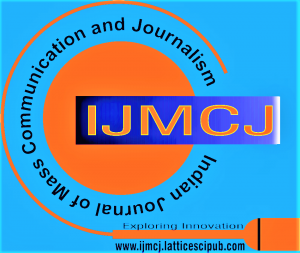![]()
Tweeting Climate Strike: A Netnographic Study of Fridays for Future’s Narratives in the USA and Bangladesh
Md Toriqul Islam1, Parvez Lelin2
1Md Toriqul Islam, Human Geography: Globalization, Media and Culture, Johannes Guttenberg University Mainz, Germany.
2Parvez Lelin, Human Geography: Globalization, Media and Culture, Johannes Guttenberg University Mainz, Germany.
Manuscript received on 02 October 2023 | Revised Manuscript received on 14 October 2023 | Manuscript Accepted on 15 December 2023 | Manuscript published on 30 December 2023 | PP: 1-8 | Volume-3 Issue-2, December 2023 | Retrieval Number: 100.1/ijmcj.B1058123223 | DOI:10.54105/ijmcj.B1058.123223
Open Access | Ethics and Policies | Cite | Zenodo | Indexing and Abstracting
© The Authors. Published by Lattice Science Publication (LSP). This is an open-access article under the CC-BY-NC-ND license (http://creativecommons.org/licenses/by-nc-nd/4.0/)
Abstract: Nowadays, Twitter (now X) has been a key battleground for environmental activism. This study reveals patterns in the narratives shared by the climate strike movement Fridays for the Future (FFF) on the microblogging platform. The article categorically investigates the points on which the platform publicises varying concerns and disseminates differing priorities in the USA and Bangladesh, situated in the so-called Global North and South, respectively, while fighting against the catalysts of climate change. The Twitter handles of the youth-led movements, namely Fridays for Future U.S. and Fridays for Future Bangladesh, are utilising this social media platform to convey their agendas globally and influence public opinion. This paper highlights the concerns and priorities shared by these Twitter communities in the two countries, aiming to mobilise their agendas and assemble their supporters. The study has found that the social media movement platforms share concerns primarily about the causes and consequences of climate change, power corruption, and system rigging by the ‘dirty companies’, climate, and social justice for those who mainly suffer during climatic disasters. The platforms also discuss possible resolutions to contain the increasing number of climatic incidents and, subsequently, their impact and action plans. The netnographic method, which employs an inductive approach, was used to analyse the tweeting data.
Keywords: Climate Change, Climate Strike, Fridays for Future, Social Media Movement, Twitter.
Scope of the Article: Media Influence
